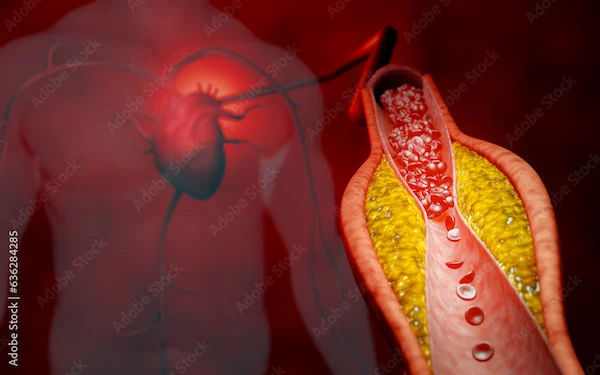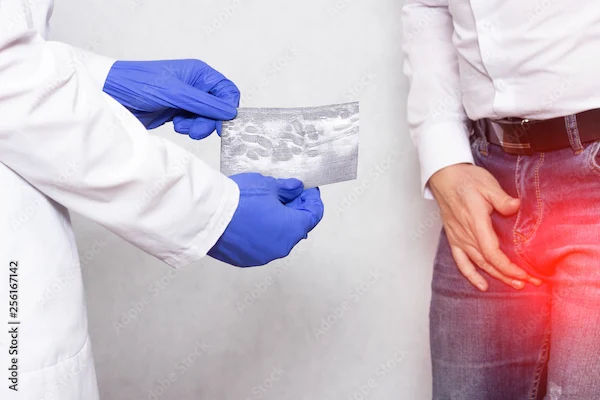Guide to Effects Of Air Pollution On Throat
Air pollution can irritate and damage your throat. Learn about the effects of air pollution on your throat and discover practical tips to protect yourself and breathe easier.

Written by Dr. Dhankecha Mayank Dineshbhai
Reviewed by Dr. Mohammed Kamran MBBS, FIDM
Last updated on 13th Jan, 2026

Introduction: The Invisible Threat to Your Throat
Every breath we take connects us to our environment, but in today's world, that breath often carries an invisible cocktail of pollutants. While we frequently discuss the impact of air pollution on our lungs and cardiovascular system, our throat serves as the first and most vulnerable point of contact. That familiar scratchiness, persistent dry cough, or raw feeling after a day in a smog-filled city is your body's alarm bell ringing. This article delves deep into the specific effects of air pollution on the throat, explaining the science behind the irritation, outlining both immediate and long-term risks, and providing a practical guide on how to shield yourself. Whether you're a city dweller, a commuter, or someone with preexisting sensitivities, understanding this connection is the first step toward better respiratory health and learning how to protect your throat from these pervasive environmental assailants.
How Do Air Pollutants Actually Affect Your Throat?
Your throat, or pharynx, is a muscular tube lined with a sensitive mucous membrane. This membrane acts as a defensive barrier, trapping particles and pathogens before they reach the lungs. Air pollution overwhelms this natural defense system.
The Role of Particulate Matter (PM2.5 and PM10)
Particulate matter (PM) are tiny, inhalable particles suspended in the air. PM10 (particles with a diameter of 10 micrometers or smaller) can irritate the eyes, nose, and throat. However, PM2.5 (fine particles 2.5 micrometers or smaller) is far more dangerous. These ultrafine particles can bypass the nose and throat's filtering mechanisms, traveling deep into the airways and even entering the bloodstream. When they deposit on the throat's lining, they cause direct physical irritation and trigger an inflammatory immune response, leading to redness, swelling, and pain—the hallmark of a sore throat from pollution.
Gaseous Assailants: Ozone, Nitrogen Dioxide, and Sulfur Dioxide
Gaseous pollutants cause chemical irritation. Groundlevel ozone (O3), a primary component of smog, is a powerful oxidant. It can react with and damage the cells lining the throat, leading to a burning sensation and inflammation. Nitrogen Dioxide (NO2) from vehicle emissions and Sulfur Dioxide (SO2) from industrial processes dissolve in the moist lining of the throat to form acids, which are directly corrosive and cause significant irritation and chronic throat irritation.
Consult Top Specialists for Personalised Tips
Immediate Symptoms of Throat Irritation from Pollution
The body's reaction to polluted air is often swift and unmistakable.
The TellTale Signs: Soreness, Dryness, and Scratchiness
The most common immediate effects of air pollution on the throat include:
Persistent Dry or Scratchy Throat: A feeling of roughness or irritation.
Pain or Soreness: Especially when swallowing.
Hoarseness: Inflammation affecting the vocal cords in the larynx.
The Urge to Clear Your Throat Constantly: A response to the feeling of particles or phlegm.
Dry Cough: The body's reflexive attempt to clear the airways of irritants.
Beyond the Throat: Concomitant Respiratory Symptoms
Throat irritation rarely occurs in isolation. It's often accompanied by:
Runny or Stuffy Nose: Pollutants also irritate the nasal passages.
Burning or Watery Eyes.
Shortness of Breath or Wheezing, particularly in individuals with asthma.
LongTerm Effects and Chronic Conditions
Repeated exposure moves beyond temporary annoyance to serious health concerns.
From Chronic Pharyngitis to Laryngitis
Ongoing inflammation can lead to chronic conditions. Chronic Pharyngitis is a persistent inflammation of the pharynx, causing a lasting sore throat and difficulty swallowing. Chronic Laryngitis involves inflammation of the voice box (larynx), leading to permanent hoarseness and voice changes. The constant assault of pollutants can also make the throat more susceptible to bacterial and viral infections.
The Elevated Risk of Respiratory Cancers
This is the most severe long-term effect. The International Agency for Research on Cancer (IARC) has classified outdoor air pollution as a Group 1 carcinogen. Prolonged exposure to PM2.5 and specific pollutants like benzene can cause mutations in the DNA of cells in the respiratory tract, significantly increasing the risk of throat cancer and lung cancer over time.
Who is Most at Risk?
While air pollution affects everyone, certain groups are more vulnerable to its effects on the throat.
Children, the Elderly, and PreExisting Conditions
Children breathe more air per pound of body weight and their respiratory systems are still developing. The elderly often have weakened immune systems. Individuals with preexisting conditions like asthma, COPD, allergies, or cardiovascular disease are at a much higher risk of severe complications.
Outdoor Workers and Commuters: HighExposure Groups
People who spend significant time outdoors—such as traffic police, street vendors, construction workers, and daily commuters on bikes or motorcycles—face a disproportionately high level of exposure, making them more susceptible to both immediate and long-term throat damage from smog.
How to Protect Your Throat from Air Pollution?
Protection involves managing your indoor environment, personal habits, and outdoor exposure.
Creating a Safe Haven: Indoor Air Quality Solutions
The Power of Air Purifiers with HEPA Filters: A high-quality air purifier with a True HEPA filter is one of the most effective ways to remove up to 99.97% of PM2.5 and other allergens from your home air, providing relief for an irritated throat.
Humidity Control and Natural Ventilation: Maintaining indoor humidity between 3050% helps keep your throat's mucous membranes moist and better able to trap particles. Ventilate your home when outdoor AQI is good, but keep windows closed during high pollution hours.
Personal Protection When Outdoors
Choosing the Right Mask: N95 vs. Cloth: Not all masks are equal. A wellfitted N95 or N99 respirator mask is designed to filter out fine particulate matter. Standard cloth or surgical masks offer minimal protection against PM2.5.
Smart Habits: Check the Air Quality Index (AQI) daily. Avoid strenuous outdoor activities like jogging during peak traffic hours or when the AQI is poor ("unhealthy" or above). Plan your routes to avoid heavy traffic corridors.
Soothing and Healing: Remedies for an Irritated Throat
The Healing Power of Hydration and Steam: Drinking plenty of water throughout the day helps thin mucus and flush irritants from your throat. Inhaling steam from a hot shower or a bowl of water helps moisturize dry airways and soothe inflammation.
Soothing Gargles and Lozenges: Gargling with warm salt water can reduce swelling and discomfort. Sugarfree lozenges can stimulate saliva production, keeping your throat moist.
When Should You Consult a Doctor?
While minor irritation can often be managed at home, certain symptoms warrant professional medical advice. If your sore throat is severe, persists for more than a week, or is accompanied by a high fever, difficulty breathing, blood in your saliva, or a lump in your neck, it is crucial to seek immediate medical attention. If symptoms persist beyond two weeks, consult a doctor online with Apollo24|7 for further evaluation to rule out chronic conditions or infections that require specific treatment.
Quick Takeaways
Air pollution causes immediate throat symptoms like soreness, dryness, and a persistent cough due to inflammation.
The most harmful pollutants are PM2.5 particles and gases like ozone and nitrogen dioxide.
Long-term exposure can lead to chronic diseases like pharyngitis and even increase cancer risk.
High risk groups include children, the elderly, those with existing respiratory issues, and outdoor workers.
Protect yourself by using N95 masks outdoors, investing in an indoor air purifier, and staying hydrated.
Always monitor the AQI and adjust your outdoor activities accordingly.
Persistent or severe symptoms require a doctor's consultation.
Consult Top Specialists
Conclusion: Empowering Yourself Against Pollution
Air pollution is a pervasive global challenge, but you are not powerless against its effects on your throat. By understanding the mechanisms of irritation—from the physical abrasion of particulate matter to the chemical burn of ozone—you can take informed, proactive steps to mitigate the damage. Prioritizing clean indoor air, adopting smart personal protection habits outdoors, and listening to your body's signals are your best defenses. Remember, that persistent throat irritation is more than just an annoyance; it's a sign of your body weathering an assault. Taking it seriously and seeking help when needed is key to preserving your long-term respiratory health. Start today by checking the AQI and making one positive change to protect your wellbeing.
Frequently Asked Questions (FAQs)
1. What does a pollution sore throat feel like?
It typically feels scratchy, dry, and raw, often accompanied by a persistent, tickly cough that doesn't produce much phlegm. You might feel a constant need to clear your throat.
2. Can air pollution cause a constant mucus feeling in the throat?
Yes. In response to irritation, your throat's membranes can produce excess mucus to trap and remove pollutants. This can lead to a feeling of postnasal drip or a constant need to clear your throat.
3. What is the best mask to prevent a sore throat from pollution?
Respirator masks rated N95, KN95, or FFP2 are the most effective for filtering out over 95% of harmful PM2.5 particles. Ensure it has a tight seal around your nose and mouth for maximum protection.
4. How can I clean my throat after exposure to pollution?
Gargling with warm salt water is an effective way to soothe inflammation and wash away some irritants. Staying well hydrated by drinking water or warm herbal teas also helps flush out particles.
5. Can poor air quality cause throat infections?
While pollution itself is not an infectious agent, the constant irritation and inflammation it causes can weaken your throat's natural defenses, making it easier for viruses and bacteria to take hold and cause secondary infections like strep throat or tonsillitis.
Consult Top Specialists for Personalised Tips

Dr Syed Mateen Pasha
General Physician
2 Years • MBBS
Bengaluru
PRESTIGE SHANTHINIKETAN - SOCIETY CLINIC, Bengaluru

Dr. Vivek D
General Physician
4 Years • MBBS
Bengaluru
PRESTIGE SHANTHINIKETAN - SOCIETY CLINIC, Bengaluru

Dr. Anand Ravi
General Physician
2 Years • MBBS
Bengaluru
PRESTIGE SHANTHINIKETAN - SOCIETY CLINIC, Bengaluru

Dr. Ashita Kuruvilla
General Physician/ Internal Medicine Specialist
7 Years • MBBS
East Midnapore
VIVEKANANDA SEBA SADAN, East Midnapore

Dr Aakash Andgi
General Physician/ Internal Medicine Specialist
9 Years • MBBS MD
Bengaluru
Apollo Clinic, JP nagar, Bengaluru
Consult Top Specialists

Dr Syed Mateen Pasha
General Physician
2 Years • MBBS
Bengaluru
PRESTIGE SHANTHINIKETAN - SOCIETY CLINIC, Bengaluru

Dr. Vivek D
General Physician
4 Years • MBBS
Bengaluru
PRESTIGE SHANTHINIKETAN - SOCIETY CLINIC, Bengaluru

Dr. Anand Ravi
General Physician
2 Years • MBBS
Bengaluru
PRESTIGE SHANTHINIKETAN - SOCIETY CLINIC, Bengaluru

Dr. Ashita Kuruvilla
General Physician/ Internal Medicine Specialist
7 Years • MBBS
East Midnapore
VIVEKANANDA SEBA SADAN, East Midnapore

Dr Aakash Andgi
General Physician/ Internal Medicine Specialist
9 Years • MBBS MD
Bengaluru
Apollo Clinic, JP nagar, Bengaluru




